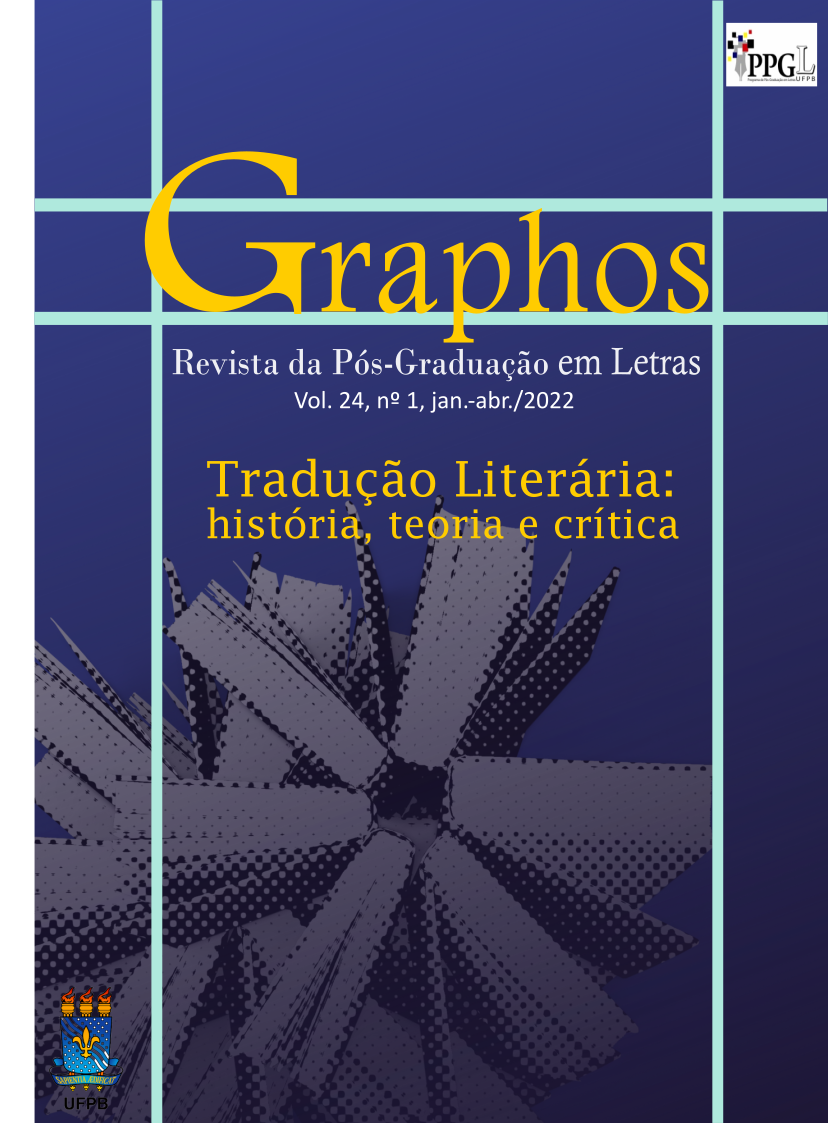Cross-looks on literary reception and translation
DOI:
https://doi.org/10.22478/ufpb.1516-1536.2022v24n1.62096Keywords:
Descriptive studies of the translation., School of manipulation translation, studies of the literary translation, cultural reception, polysystem theoryAbstract
This paper concentrates on literary translation theories based on literary sciences. Tomaszkiewicz recalls that the theory of reception or aesthetics of reception, developed by H. R. Jauss and W. Iser, also named School of Constance, is concerned to the reception of literary texts and dates back to late 1960s. At the same time, the polysystem theory, proposed by Even Zohar and Gideon Toury, was also introduced in Translation Studies. This was an important initiative, given that, up until then, translation had mostly been considered as a purely linguistic nature activity and started, then, being comprehended as a cultural decantation in which text reception played a very important role. The inclusion of the receiver in Translation Studies is not only theoretically legitimized, but also occupies the forefront of the interests in which the receiver is obligatorily integrated in the communicative network. Translators play, then, the twofold role of receiver and sender, becoming the first receiver of the original text and the sender of the translated text. This paper addresses the main advances of Literary Translation Studies, including Descriptive Translation Studies, polysystem theory, Manipulation School as well as norm concepts.
Downloads
References
BAKER, Mona. The Routledge Encyclopedia of Translation Studies. London & New York: Routledge. 1998.
BASNETT, Susan. Comparative Literature: A Critical Introduction. Oxford: Blackwell Publishers, 1993.
EVEN-ZOHAR, Itamar. Polysystem Studies. Poetics Today. International Journal for Theory and Analysis of Literature and Communication. Tel Aviv: 1990, p. 11.
HERMANS, T. The manipulation of literature: studies in literary translation. London: Croom Helm, 1985.
HOLMES, James S. The Name and Nature of Translation Studies. In: HOLMES. Translated Papers on Literary Translation and Translation Studies. Amsterdam: Rodopi, 1988. DOI: https://doi.org/10.1163/9789004486669
HURTADO-ALBIR, Amparo. Traducción y traductología: introducción a la traductología. Madrid: Cátedra, 4. ed., 2008.
IGLESIAS SANTOS, Montserrat. El sistema literario: teoría empírica y teoría de los polisistemas. In: VILLANUEVA, Darío (org.): Avances en teoría de la literatura: estética de la recepción, pragmática, teoría empírica y teoría de los polisistemas. Santiago de Compostela: Universidade de Santiago de Compostela, 1994. p 309-356.
LAVIOSA, Sara. Corpus-based Translations Studies: theory, findings, applications. Amsterdam: Rodopi, 2010.
TOMASZKIEWICZ, Teresa. ¿Cómo define la Traductología sus objetivos y metodologías de análisis?. In: DOMINGUEZ, Fernando Navarro (eds.). La traducción: balance del pasado y retos del futuro. Alicante: Editorial Aguaclara, 2007.
TOURY, G. Descriptive Translation Studies and beyond. Amsterdam/Philadelphia: John Benjamins Publishing Company, 1995. DOI: https://doi.org/10.1075/btl.4
TOURY, G. In search of a theory of translation. Tel Aviv: The Porter Institute for Poetics and Semiotics, 1980.
VENUTI, Lawrence. Escândalos da tradução. Trad. Laureano Pelegrin; Lucinéia Marcelino Vilela; Marileide Dias Esqueda; Valéria Biondo. Bauru-SP: EDUSC, 2002.
Downloads
Published
Issue
Section
License
Copyright (c) 2022 Lucilene Machado Garcia Arf

This work is licensed under a Creative Commons Attribution 4.0 International License.







